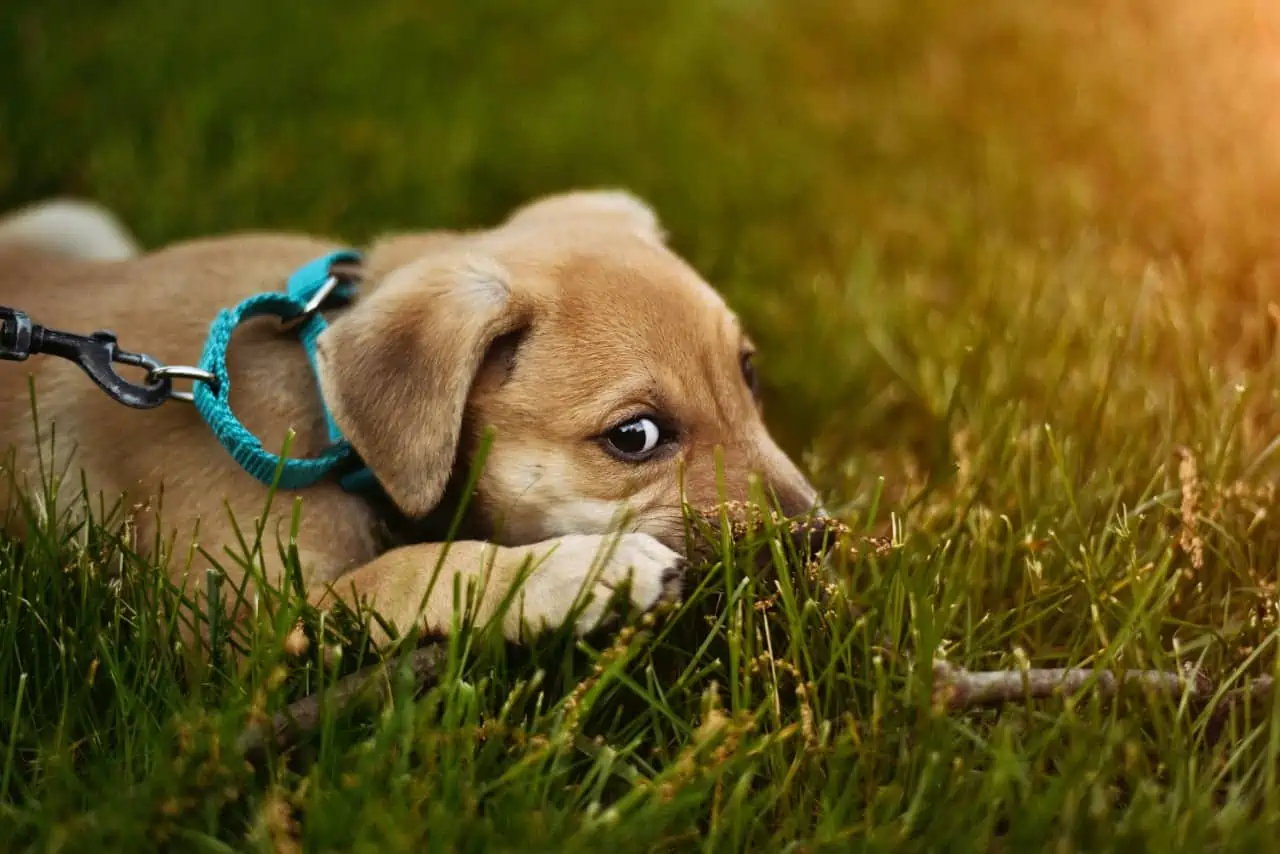While getting a new puppy is super exciting and you just want to spend the eternity holed up in your love nest, you cannot force them to stay within four walls lifelong. You will have to introduce them to the outer environment at some point of time, be it for socialising or potty training.
But unfortunately first time owners have issues in deciding the right time to take their puppies outside. There are many things to consider when it comes to a pup’s health and therefore feigning ignorance might cost you a lot in the end.
Puppies are incredibly fragile as well as sensitive to infections and microbe infestations. Therefore, it is never advised to take a puppy outside until all the essential vaccinations are completed. Only after a proper vaccination, their bodies become capable of fighting against infections and deadly viruses. And hence, as a responsible pet parent you need to follow this step without any excuses.
Table of Contents
Why are puppies so fragile?
Similar to human babies, puppies grow gradually. When they are born, their organs and senses are not completely developed and the only thing they have in bulk is their mother’s antibodies which pass to them through her milk. Thus, as time passes, their bodies start growing, including their organs and senses, their eyes open and better muscle coordination starts to take place.
However, in the first few weeks of their development (mostly until they are of 16 weeks age) their susceptibility to outward infections or diseases is considerably high. The reason being their immune system at that time is not sufficiently developed to fight against such attacks. Hence, in case of exposure to deadly viruses their little bodies aren’t able to fight back, leading to their unfortunate demise or worse, permanent body damage.
What will happen if I take my puppy outside before vaccination?
Depending upon the area you reside in, its weather conditions, season, exposure to other dogs, cleanliness and various other factors, your ignorance will cause your dog to suffer through numerous troublesome phases. These include:
-
Exposure to Canine viruses
Although a seemingly harmless action, taking a little pupper outside without proper vaccinations makes them the prime target of various canine viruses. Most viruses including parvo virus, canine distemper, and parainfluenza are highly contagious and can spread from one dog to another at lightning rates. They can severely disrupt the puppy’s internal organs and the CNS, leading to hyper seizures, diarrhoea, severe dehydration, vomiting, fever, paralysis, and even death.
-
Risk Skin Infections
You never know what kind of skin diseases another dog might be having. And hence taking your little bundle of joy outside before they are all vaccinated also makes them prone to skin infections. Anything from manges to folliculitis or even yeast infections may jump on to your pooch’s body and make them seriously ill.
-
Cause worms
While many may claim walking your pup within your fence or own yard doesn’t do any bad, medical findings have proven the complete opposite thing. No matter how neat and clean your yard might be, it still may be inhabited by worm eggs, which are microscopic and easily get attached to your pet’s fur. Even worse, they may directly go into your unsuspecting woofer’s body, in case your pup decides to lick a piece of grass or sniff around.
These eggs then infest the heart, skin and intestines slowly absorbing all essential nutrients from our blood. As a result, the pup gradually gets weaker and considerably vulnerable to all kinds of infections and diseases. Ignoring such cases for long, finally leads to their untimely quietus.
Canine viruses spread from an infected dog to a healthy one through various modes of transmission. Starting from contaminated urine, faeces, blood, saliva, to even seemingly safe places, there’s a lot that can cause your new pup to get severely ill.
Additionally, some of them also have high resistance to weather and temperature fluctuations and hence a longer life cycle which they mostly spend as dormant. Only upon being transferred to a new host, they start their reproductive and feeding cycle once again.
So, if you don’t want to play around their little lives, following the proper vaccination protocols is highly necessary.
What are puppy vaccinations?
Vaccines primarily curated for puppies are known as puppy vaccinations. They either contain live mutated antigens or dead ones which when injected into their bodies helps their immune system to produce antibodies against them. Thereby helping them gain a protective stance against similarly related illnesses.
As per the American Animal Hospital Associations’ Canine Task Force, there are five major puppy vaccinations that are mandatory when keeping a canine as a domesticated pet. These include:
- Canine Parvovirus
- Canine Distemper
- Hepatitis
- Leptospirosis
- Rabies
To read more about these vaccinations, you can visit here.
How long does it take to vaccinate a puppy completely?
Based upon the puppy’s health, vaccination starts somewhere around 6-8 weeks of age.
- The pup is first dewormed to get rid of any existing worms from deep inside their body as they can interfere with the vaccine’s potency.
- From the date of the first deworming, the puppy is then administered its first shot of DHPPi after an interval of seven days. DHPPi stands for Canine (D)istemper, (H)epatitis, Canine (P)arvovirus and Canine (P)arainfluenza and is a live attenuated vaccine for puppies and dogs.
- Since then, deworming is repeated with 10-15 days of interval from the previous date and the second booster dose of the DHPPi is given after a 21 days interval from the first shot.
- Similarly, the vet may also advise extra shots based upon the environment, weather and climatic conditions of the area the furbundle resides in.
- Finally, upon reaching three months of age, the pup is administered its first rabies vaccine. It helps ensure protection against the highly fatal rabies virus that can cause severe health side effects and death.
- Although a second shot is not mandatory, you may consult with a vet and get your pup this booster shot of rabies for an overall complete protection.
Apart from these, your pup might also need specific care in case it contracts something during the vaccination schedule. The vet will run them through essential tests to find out the underlying reason and nurse them back to health.
Why does it take so long for puppy vaccinations to kick in?
When puppies are born, they naturally have a large portion of their mother’s antibodies in their system. While this is not enough to sustain them from high-grade infections and contagious illness, the antibodies help prevent certain flu from occuring to the tiny little furballs.
And similarly, when live attenuated or dead vaccines are injected into the pup’s bodies, the existing mother’s antibodies may fight against the new antigen, causing a reduced potency of the vaccine. This is why repeated shots are advised to be administered every two to four weeks when the woofer is between 6-16 weeks of age. As a result, the puppies’ own immune systems start kicking in, ensuring a much more effective protection from outside harmful factors.
So, a puppy is not all about cuteness, photos, social media likes and comments. It is a responsibility and a lifelong promise that a pet parent requires to fulfil with utmost sincerity.
However, if you are not ready to be accountable for a little life, then postponing the decision to bring home a pooch is for everyone’s best.
In this blog we have covered all details regarding puppy vaccinations and why it is never advised to take a pup outside before vaccination. If you have more questions on this topic, be sure to mention your queries in the comment section below.
If you are a dog lover then, Subscribe to our weekly newsletters. No Spams!









